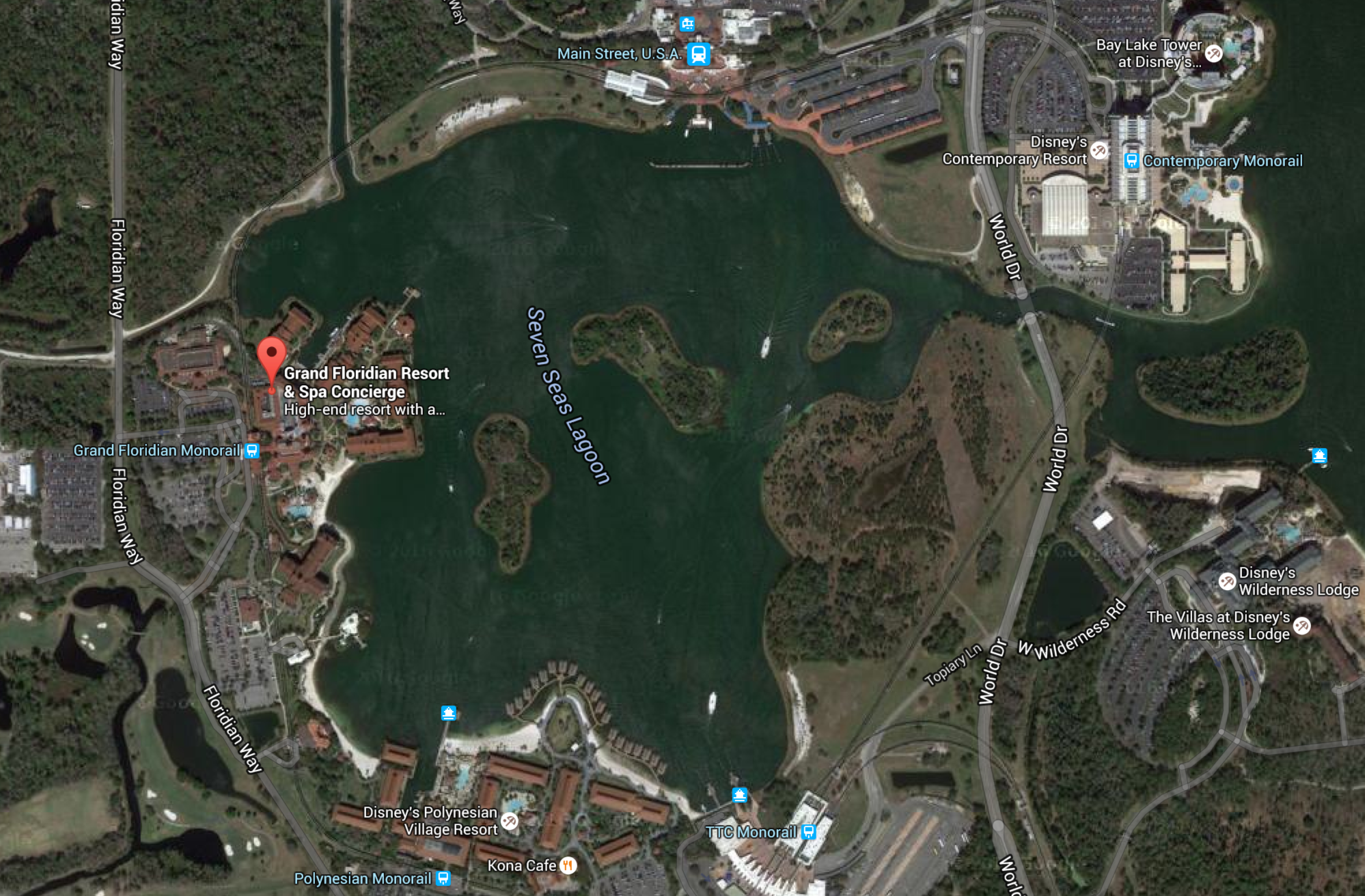A boy who was two years old was with his father at the beach of the Seven Seas Lagoon at the Grand Floridian Resort & Spa at Walt Disney World in Florida when a large alligator reportedly snatched him and dragged him into the water, according to accounts of this story from multiple sources.
The father of three children entered the water and unsuccessfully attempted to rescue his son from the alligator.
At the time of this article, search and rescue teams were still attempting to find the boy, who traveled to Walt Disney World with his family from Nebraska.
Boy Dragged Into Water by Alligator at Disney World: Who Is At Fault?
There has been vociferous debate amongst readers of multiple articles pertaining to this story, with several thoughts as to who exactly was at fault in this incident.
Were the parents at fault? Signs are posted at the beach of the lagoon — which is part of a man-made lake which has canals feeding into it — warning people not to swim in the water. There have been conflicting reports of whether the boy was on the beach itself or wading in water which was approximately a foot deep.
Was Walt Disney World at fault? Were the signs warning swimmers not to swim enough to keep people out of danger? Should Walt Disney World have been more proactive about preventing people from entering the water? Was the resort negligent in adequately protecting its guests?
Was this simply an unfortunate incident? With travel, there are risks — even when those risks are not expected; and especially when the risks are extremely rare. Is this incident merely an anomaly of humans coexisting with wildlife?
Alligator Statistics in Florida
According to this article of the official Internet web site of the Florida Fish and Wildlife Conservation Commission, “Alligators have inhabited Florida’s marshes, swamps, rivers and lakes for many centuries, and are found in all 67 counties.”
This document from the same source explains that the chances of being killed by an alligator are quite low: “Although most Floridians understand that we have alligators living in our state, the potential for conflict exists. Because of their predatory nature, alligators may target pets and livestock as prey. Unfortunately, people also are occasionally bitten. Since 1948, Florida has averaged about five unprovoked bites per year. During that period, a little more than 300 unprovoked bites to people have been documented in Florida, with 22 resulting in deaths.”
Hopefully, the unidentified boy will not become statistic number 23.
The aforementioned document goes on to say that “In the past 10 years, the Florida Fish and Wildlife Conservation Commission has received an average of nearly 16,000 alligator-related complaints per year. Most of these complaints deal with alligators occurring in places such as backyard ponds, canals, ditches and streams, but other conflicts occur when alligators wander into garages, swimming pools and golf course ponds. Sometimes, alligators come out of the water to bask in the sun or move between wetlands. In many cases, if left alone, these alligators will eventually move on to areas away from people.”
Summary
The best way to deal with nature is to simply leave it alone — for many reasons. I personally have never been stung by a bee or a wasp because I do not panic or attempt to attack when one is near me. I also do not venture too close to wild animals simply because they prefer to be left alone. If I want to view them up close — as I did when I was on safari in Kenya last year — I have my trusty camera to not only assist me; but also to capture images of animals for me to view later whenever I want.
Of course, leaving nature alone is by no means foolproof. If a wild animal is hungry and sees a small human being as prey, it cannot reason to leave it alone. It will simply go after its prey to kill and eat it…
…but there are still many unanswered questions to this incident — including but not limited to whether or not the father was properly supervising his son; whether they were definitively in the water or on the beach itself; and whether the beach — all beaches are currently closed at Walt Disney World until further notice — should have been open to guests at all.
Guests of Walt Disney World expect to be completely safe, as it is a more controlled environment than — say — a safari in Africa. While an admirable goal, is 100 percent safety a realistic expectation?
Parents are expected to protect their children while traveling in general; and frequent fliers have long complained that some parents take little to no responsibility in caring for their children. Some people may be quick to jump to the conclusion that this incident occurred as the fault of the father — but is that really the case?
I personally believe in general that parents should supervise their children as best as possible and that major companies should protect their customers as best as possible — whether or not the parents and customers are traveling — but there also has to be a realistic balance of managed expectations, as there is no way that every single danger or hazard can be anticipated. Everything we do involves risk; and the probability of being killed by an alligator in Florida — before the occurrence of this incident — is fewer than one death every three years amongst the millions of residents and tourists which visit Florida every year.
My thoughts and prayers are with the family of the boy, whom I hope will be found and emerge from this incident alive and relatively unscathed. I cannot even imagine the horror through which the parents are currently enduring…
Imagery ©2016 TerraMetrics. Map data ©2016 courtesy of Google Maps.

